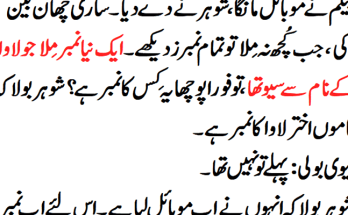Attention Deficit Hyperactivity Disorder (ADHD) is one of the most common neurodevelopmental disorders in children, affecting their ability to focus, control impulses, and stay organized. ADHD can be challenging for children and their families, as it impacts not only academic performance but also social interactions and family dynamics. Understanding ADHD and learning strategies to manage it can help children succeed and thrive in various aspects of life.
ADHD in children is typically identified through behaviors like constant fidgeting, difficulty focusing on tasks, impulsive actions, and struggling to complete assignments. While all children may show these behaviors at times, children with ADHD experience them more frequently and to a degree that interferes with their daily functioning. ADHD is usually classified into three types: predominantly inattentive, predominantly hyperactive-impulsive, and combined presentation. Identifying the type of ADHD a child has can help parents and educators tailor support strategies effectively.
A comprehensive evaluation by a pediatrician, psychologist, or psychiatrist is essential in diagnosing ADHD accurately. The diagnosis process often includes gathering detailed information from parents, teachers, and caregivers about the child’s behavior across different environments. Standardized behavior rating scales, observation, and sometimes neuropsychological testing are used to assess the child’s symptoms. Once diagnosed, families can explore treatment options that suit their child’s unique needs, such as behavioral therapy, medication, or a combination of both.
Behavioral therapy is a commonly recommended approach, teaching children skills to manage their symptoms and develop coping strategies. For example, behavior therapy can help a child learn to break tasks into smaller steps, use tools for organization, and develop reward systems for positive behaviors. These techniques promote self-discipline and accountability, enabling children to focus better, manage impulses, and build confidence. Parents are often encouraged to participate in behavioral therapy to help reinforce these strategies at home.
Medication, such as stimulant or non-stimulant drugs, is another effective treatment option for many children with ADHD. Medications help regulate neurotransmitters in the brain, improving focus, impulse control, and behavior. However, medication is not suitable for every child, and parents must work closely with healthcare providers to monitor any side effects and ensure the medication is beneficial. Balancing medication with behavioral strategies can be particularly effective, as it addresses both biological and behavioral aspects of ADHD.
Schools also play a vital role in supporting children with ADHD. Teachers and staff can collaborate with parents to create an Individualized Education Program (IEP) or a 504 Plan that accommodates a child’s specific needs. Strategies such as providing clear instructions, allowing short breaks, and offering positive reinforcement help ADHD children succeed in the classroom. Building an ADHD-friendly learning environment not only helps the child with ADHD but also fosters a more inclusive and supportive atmosphere for all students.
ADHD requires a holistic approach involving family, healthcare providers, and educators working together to support the child. While ADHD poses challenges, it also provides opportunities for children to develop resilience, creativity, and strong problem-solving skills. With proper support, children with ADHD can build the skills necessary to succeed academically, socially, and emotionally, setting a foundation for a fulfilling and successful future.



